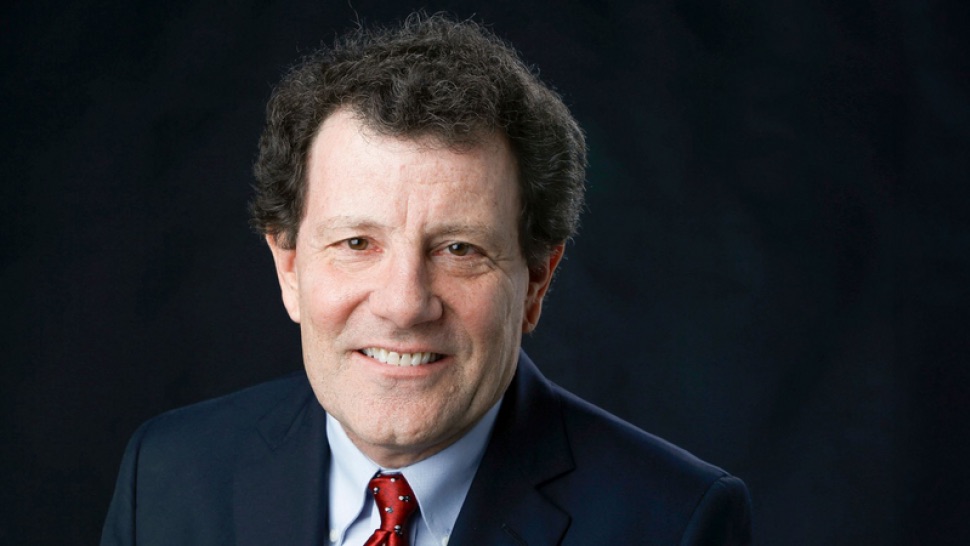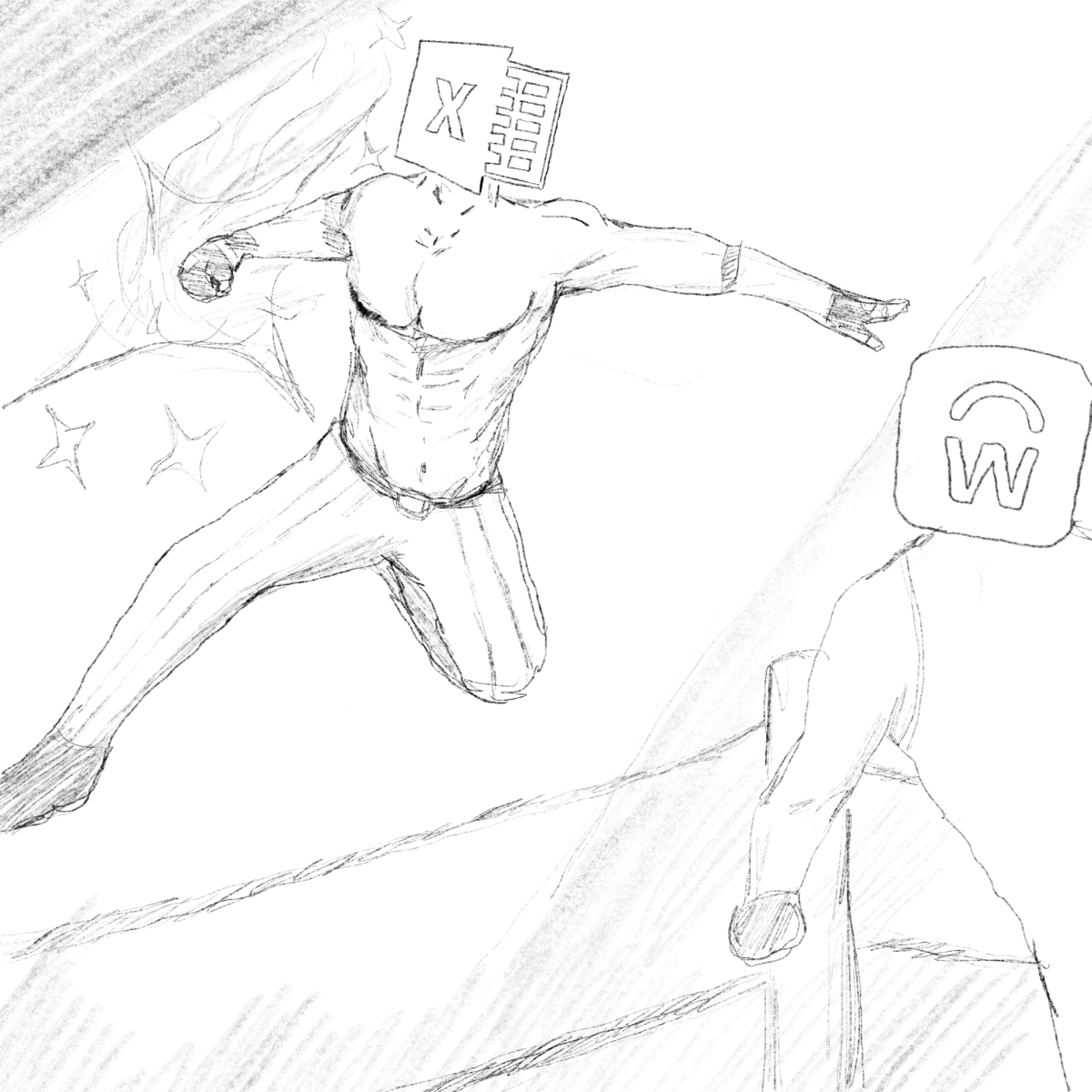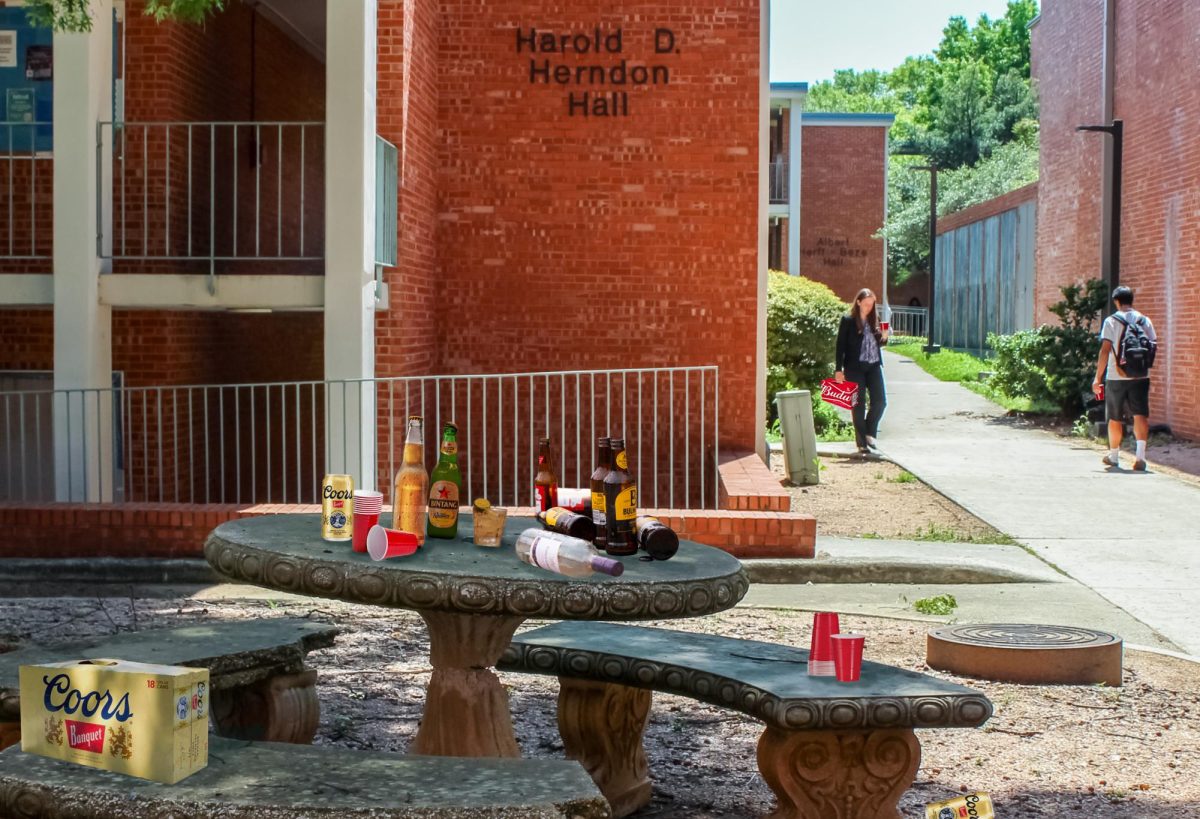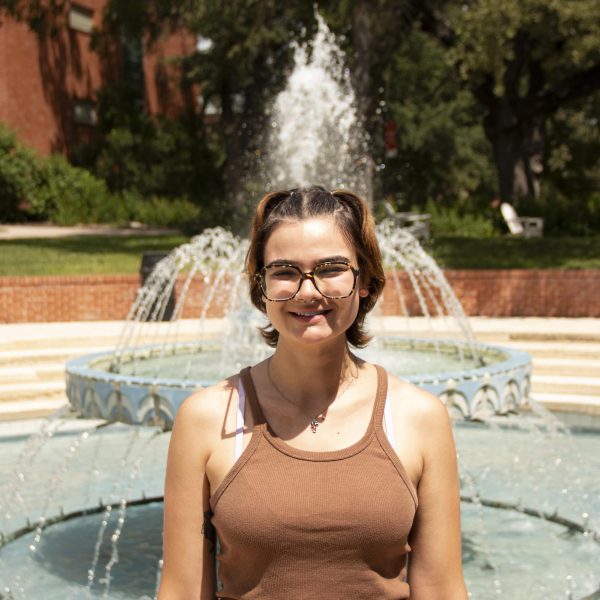Nicholas Kristof, two-time Pulitzer Prize-winning New York Times columnist and author, spoke in Laurie Auditorium for the 14th annual Maverick Lecture on Sept. 19. He also gathered a handful of students and staff for a meet-and-greet before the lecture.
Kristof broke the news of the Tiananmen Square Massacre and the Darfur genocide in Western media, and set in motion the removal of 80% of the videos on Pornhub after sharing the stories of women who were affected by the company’s negligence. Kristof spoke to hundreds from the San Antonio community and gathered with a small number of students and staff to discuss his journalistic experience and everyone’s role in resolving the silently pervasive issues in our communities
Bruce Bravo, senior director of conferences and special programs, explained that the event honors newspaper columnist and San Antonio native Maury Maverick Jr, and the department chose Kristof partially because of his humanitarian work.
“We felt — Bill [Scanlon] felt — that Nicholas and what Nicholas’s work has exemplified and what he has pursued in his life … that that aligned almost perfectly with Maury Maverick and what was important to Maury,” Bravo said.
Kristof opened his lecture by discussing his time reporting in foreign countries, opening up about his time in China in 1988 and 1989 and his realization that the people uneducated about what kind of democracy they were fighting for were the ones wholeheartedly committed to it. In the U.S., he noted, that motivation wasn’t there.
“We, in this country, don’t always fully value the democracy and the institutions and the guardrails that we inherited,” Kristof said. “We haven’t been as willing to preserve what we’ve inherited compared to the willingness of people like that bus driver or those rickshaw drivers [in the Tiananmen Square Massacre] who understood the benefits of a broad-based democracy.”
Kristof told the audience about his childhood: the number of children he grew up with who died from issues with drugs and those who left school or ended up hurting others. Those issues, the ones surrounding children’s literacy and education levels, were the ones he said he focused on most. Kristoff emphasized similar sentiments during the meet-and-greet and one-on-one interview that preceded the lecture when asked about fascism in the U.S.
“I think that there is a real risk of backsliding on democracy, of the military or justice department being politicized, of political violence being weaponized against people,” Kristof said. “I don’t think of it as a binary ‘either-or’, I think of it as a sliding scale, and I think there is a genuine risk that we slide backward 20 points on that scale or 30 points.”
Throughout all of his stories, Kristof addressed the dilemma between following professional duties and humanitarian duties. Despite the struggle of the decision, Kristof said that helping another person came first every time. Jaida Johnson, senior international studies major, moderated the Kristof meet-and-greet but asserted that helping someone should never be a dilemma.
“It felt at times like he was trying to justify putting his job above helping people, but then emphasizing how he does the opposite, which makes him stand out,” Johnson wrote in an email. “For me, helping someone in need should always be a priority, regardless of the job.”
Johnson agreed with Kristof’s sentiments about putting your responsibility as a human above your professional duties. However, she emphasized that his storytelling revealed more than just what he was saying.
“I just found it interesting that he chose to pursue that narrative instead of another one,” Johnson wrote. “I think when we frame situations in certain ways, we’re also making a statement about what we leave out, which I like to think about.”
Despite Johnson’s criticism of Kristof’s framing of ethical issues, both she and Kristof indicated that helping people should be the goal. Even students, Kristof stated, have this power.
“Students sometimes feel overwhelmed by problems and feel like they can’t solve a given problem, and I think it’s true that some students aren’t going to solve the problem of kids not getting an adequate education, but they can solve that problem for one particular family or these five particular families,” Kristof said. “I would encourage people to remember — students to remember — that you don’t have to solve a problem for every American to be making a difference. Everybody has the opportunity to make some transformative impact on particular families.”
This ability becomes imperative to use when you have the privilege and ease to use it, Kristof noted during his lecture. He declared that everyone at Trinity University has won “the lottery of birth,” and that they must use what they have won.
“Truly, the fact that we are in this room [Laurie Auditorium] right now, does mean that we have won that lottery of birth, and with it, we need to contemplate the responsibilities that come with that — to pay it forward and to pay it back,” Kristof said.









